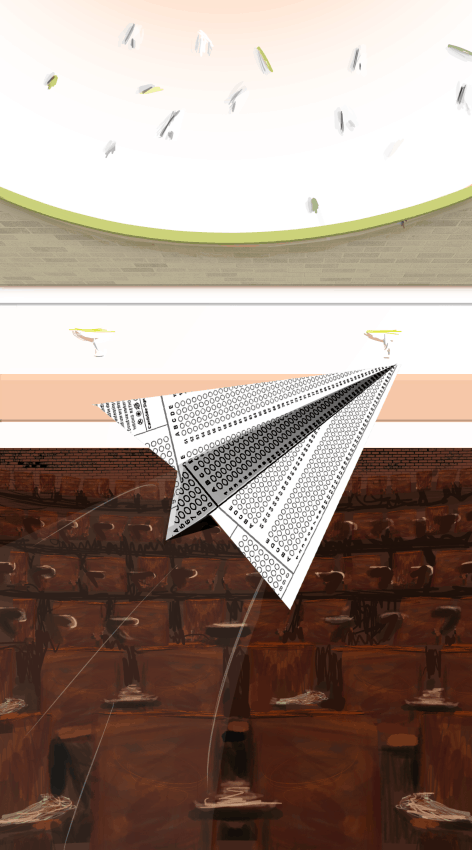CHELSEA POWRIE
Culture Editor
A student’s performance on their final exam should be an accurate representation of what they learned in that course. Too often however, it is not.
The question is, would standardizing the weight of final exams improve the career prospects of University of Saskatchewan graduates?
I propose 40 per cent finals across the board, with the remaining mark being comprised of two midterms and assignments of varying weights. Midterms are valuable for students, as they provide feedback on performance at that point. Multiple midterms are painful, yes, but they’re useful checkpoints to keep students engaged and committed.
Likewise, homework serves the same purpose, and the process of completing it brings about a deeper learning process than cramming. In my experience, skills gained completing assignments are far more likely to be retained in the long term than those hectically practiced at the last minute.
 Let’s be honest — we’ve all written exams that we probably shouldn’t have passed. We’ve stayed up all night reading through every lecture slide, frantically taking notes and gulping Code Red Mountain Dew. We’ve compressed the material down to a single page and then attempted to memorize it, feverishly flipping through flashcards until the last possible second in the hallway outside of the exam room. And — without fail — we’ve checked our marks a few weeks later to see if we failed, only to find that we actually did pretty well.
Let’s be honest — we’ve all written exams that we probably shouldn’t have passed. We’ve stayed up all night reading through every lecture slide, frantically taking notes and gulping Code Red Mountain Dew. We’ve compressed the material down to a single page and then attempted to memorize it, feverishly flipping through flashcards until the last possible second in the hallway outside of the exam room. And — without fail — we’ve checked our marks a few weeks later to see if we failed, only to find that we actually did pretty well.
The problem with this kind of learning is that it doesn’t last. Two weeks later, you couldn’t pass that test again if your life depended on it. But you’ve still got that mark on your transcript which is supposed to tell the world that you’ve mastered at least some percentage of the course’s content.
Final exams come in all shapes and sizes, ranging from the take-home essay worth 20 per cent to the monstrous three hour ordeal riddled with trick questions and problems you swear the professor never covered. Meanwhile, both ends of the spectrum are expected to be properly indicative of a student’s grasp of the content.
As it stands, a bachelor’s degree gained from the U of S can mean a lot of different things when it is broken down into its individual courses. At the end of the four or so years, no matter what the percentage of each of your finals was worth, you earn a degree.
But there are still so many different ways of assigning grades among colleges and courses. Your degree could stand for years of dedicating yourself and forgoing a social life or it could stand for years of skipping class to sleep off hangovers and cramming effectively at the last minute.
With standardized exams, if an employer were to see a U of S graduate’s resume, they would know that it stood for a rigorous standard of education. They could rely on the knowledge that an applicant’s degree represented a strong level of comprehension in that field.
High percentage finals provide the opportunity for laziness. Every student has felt the temptation to slack off, especially in the aftermath of the rigid attendance taking in high school. Having a heavily-weighted final means someone could pass a course they barely attended simply by cramming. On the other hand, finals are still important and they shouldn’t be worth too little — they are, after all, at the end of the course and they should confirm that the student has adequately learned the course content.
Yes, this sounds like more work, since many courses don’t currently adhere to this level of organization. But isn’t it better to be constantly obligated to work and learn because of due dates and multiple tests than to leave it all up to your own motivation? We would get more out of our courses, we’d go into our finals more prepared and we could stop spending so much money on caffeine.
If the percentage that finals were worth was standardized, an undergraduate degree from the U of S would begin to mean something more than it currently does. As it stands, employers can’t know what kind of employee they’re getting — steadfast and studious or lazy and lucky? Final exams should be used to gauge the knowledge gained over an effectively managed course and should not be an opportunity for last minute salvation.
Leave a Reply